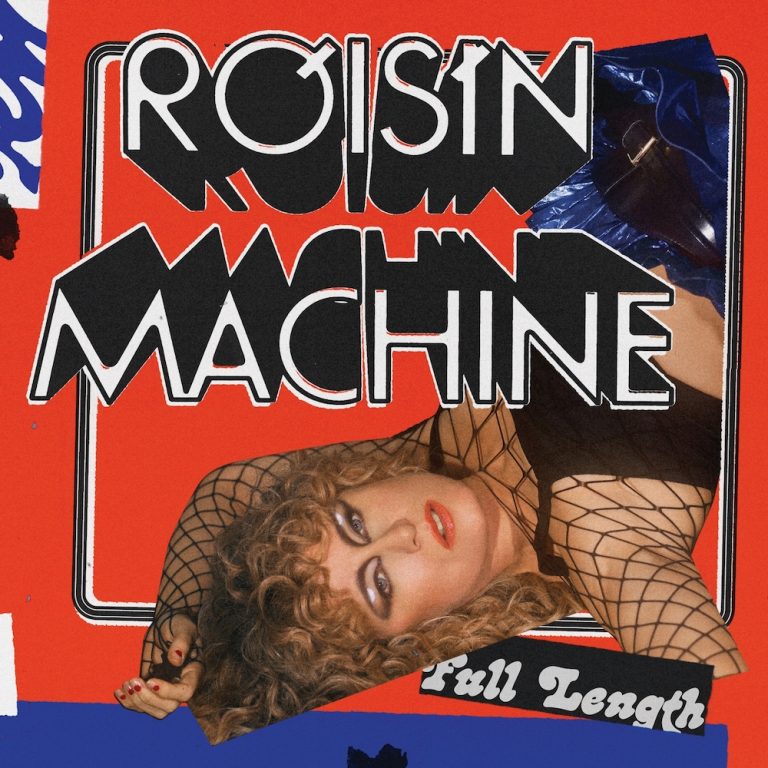For anyone who’s been paying attention, it should come as no great shock that Róisín Machine, the fifth solo album from pop singer-songwriter Róisín Murphy, is a full-on disco house album. For years, Murphy has taken to releasing extended remixes of her songs, often presented in a more straightforward, four-on-the-floor, house-or-disco-influenced aesthetic. Over the past year or so, Murphy has put out four long, groovy singles, each getting its own statement release, standing alone on its own merits. The year before, she gave us eight other singles. Quickly after announcing Róisín Machine, the title has become more obviously appropriate for this woman’s work: prolific, frequent, and so very Róisín.
In fact, out of the 10 tracks on this new record, six have already been released as singles (like last year’s “Narcissus” and “Incapable”), with some dating all the way back to 2015 (“Simulation”). Many of the other popular singles she’s put out in recent years, such as the incredibly-titled “Jacuzzi Rollercoaster”, are not part of this collection, but that’s refreshing for two reasons; firstly it means we may get them in some form on a future project, and secondly it gives us room for some brand new fresh ideas on Róisín Machine. After all, it wouldn’t be that exciting to get 10 tracks we’ve heard before, simply wrapped up in the tidy bow of ‘an album’.
Well, turns out that even with the four new tracks, this album isn’t as exciting as it could’ve been anyway. One of the issues with some of Murphy’s recent singles has been that they often simply go on too long; thankfully several of the ones that are included here have been cut down or shifted into a slightly new variation. This is especially true of “Incapable”, which mercifully lobs off about five minutes of the single version’s eight-minute runtime to become the album’s shortest song. Half the tracks on Róisín Machine still go over the five-minute mark, but for many songs the length is not the main problem – it’s in the sometimes-startling lack of variation across these tracks, the lack of development occurring as the songs progress.
“Simulation”, the opener and longest song here at eight-and-a-half minutes, starts off promisingly enough, with a dramatic string section and a pitched-down sample of Murphy stating, “I feel my story is still untold / But I’ll make my own happy ending.” It’s a statement of purpose, and a good one at that: it clarifies for us, in case we didn’t know yet, that this is Murphy at her most pure, her most distilled. She is clearly making the album she wants to make, and who can begrudge her that? The problem is that, once the core instrumental and beat kicks in, it quickly becomes apparent that the song is hardly going to change, with Murphy singing very repetitive lyrics over an equally repetitive beat and chord progression.
Even worse is “We Got Together”, which takes a chord progression of three notes, a super simple percussive beat, and Murphy essentially singing the same lyric over and over again (guess what it is) until the song’s eventual end five minutes later. All in all, it’s an interminable track that could have been at least half as long. A similar issue crops up in “Game Changer”, though at least that one has a stronger start with some interesting speak-sing vocal deliveries and witchy backing vocals.
Of course, Murphy’s desire is to give us dance music. Repetitious though they may be during active listening, the songs’ beats and grooves are easy to bob your head to, and would likely elicit nothing but smiles when played loudly over the speaker at a party. But from a critical perspective, they are sorely lacking in variety, tension, or much in the way of interesting ideas.
Luckily, there are several highlights on the album. “Something More”, one of the very few tracks in Murphy’s catalog whose lyrics she did not write herself (it was developed with songwriter Amy Douglas), shows a firmer handle of its runtime, developing organically and giving us a dramatic, candlelit vocal. “Narcissus” flirts with one of Murphy’s favorite modes: approaching pure silliness. The song is knowingly overdramatic, a glammy, campy dance number that, in some perfect alternate universe where there are no planet-ravaging pandemics and people like Murphy rule the airwaves, would be pulsating in every night club. Best of all is the funky “Murphy’s Law”, boasting a chorus that is indelible and instantly catchy, with Murphy’s pitched-down vocal giving the song a slightly mournful edge that really sells the hopelessness of the lyric. It’s just a knockout track.
There are some other interesting ideas, such as the beatless and totally haunted “Kingdom of Ends”, where Murphy is joined by an intoxicating chorus of voices, resulting one of the weirdest songs to land on a dance album that comes to mind. And on the closer, “Jealousy”, we get some piercing alarm-like vocal deliveries, with Murphy leaving us on a high note, showing what a dancehall diva she really can be.
So much of the album, though, feels so stale, tedious, and sometimes devoid of anything deeply moving or intriguing, that the highlights are not quite enough to save the overall experience. The beats are sterile and dry much of the time, and the lyrics sometimes come off like window dressing. Murphy has several weird electronic pop albums under her belt (Ruby Blue, Hairless Toys, and most of her work with Moloko) that are worth checking out, so while Róisín Machine is probably the most straightforward album she’s made, and is clearly within her wheelhouse, it just leaves a desire that she had pushed things even further, as we know she’s capable of doing.

